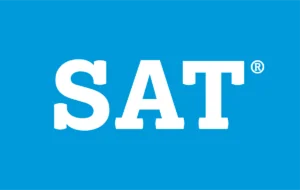It’s no secret that getting into the college of your dreams is complicated. One should have a high GPA, excellent test results, and a lot of extracurricular activities. This demanding list is topped by volunteer work. Moreover, students must impress the admissions committee with their college applications. That sounds like a lot, but it does not end there.

✅ AI Essay Writer ✅ AI Detector ✅ Plagchecker ✅ Paraphraser
✅ Summarizer ✅ Citation Generator
Key Takeaways:
- St. John’s College is pioneering a discussion-based college admissions process as an alternative to traditional methods.
- The shift towards personalized admissions is a response to various challenges including the end of affirmative action and advancements in AI.
- AI tools like ChatGPT may be efficient but lack the ability to evaluate an applicant’s character and suitability for a college’s unique environment.
The way colleges decide who gets in is changing big time. Why? Well, two main reasons. First, new tech like AI is making it hard to know if an application is really showing the true student behind it. Second, rules around affirmative action have ended, shaking up how colleges make fair choices. So, what’s the solution some colleges are trying? Good old face-to-face meetings. Indeed, some colleges are saying “Let’s actually meet and talk” instead of just looking at papers and scores.
The Shift to Discussion-Based Admissions
St. John’s College in Annapolis, Maryland, has introduced a new “discussion-based” application process. Applicants have the option to forgo traditional components like essays or test scores in favor of interviews and participation in college seminars. Benjamin Baum, St. John’s director of admissions, believes that this aligns with their unique approach to education, stating:
“It’s certainly a big departure … but most colleges’ applications look very similar to each other, and until recently so did ours—despite the fact that we think of ourselves as being a very different kind of institution.”
This comes at a time when the traditional application process is being questioned on multiple fronts: from the abolition of affirmative action to the ambiguity surrounding AI-generated essays. David Hawkins, chief education and policy officer for the National Association for College Admission Counseling, feels the following way:
“There are certainly recent changes in the landscape that could lead to more robust usage of these tools.”
Benefits of Personalized Admissions
The traditional college application process often leaves students feeling like just another number, but high-contact admissions practices aim to change that. According to a recent NACAC poll, almost two-thirds of applicants felt depersonalized during their college admissions journey. Olin College is setting a new trend by inviting select applicants to a Candidates Weekend on campus, where they engage in specialized classes, meet current students, and even undergo in-person evaluations. Susan Hartley-Brisson, the dean of admissions at Olin, emphasizes that this hands-on approach is mutually beneficial:
Colleges get a well-rounded view of applicants “in action,” and students get to truly understand the culture and academics of the institution they may attend.
Not only does this dynamic process humanize applicants, but it also introduces a layer of equity into admissions. Designed to serve underrepresented students who might find traditional applications challenging—such as those from underresourced schools or who are first-generation college applicants—these high-contact practices open new avenues for holistic assessment. The aim is to capture the full potential of a student, which can often be missed in standardized application methods. While there are concerns about the logistical challenges of such a system, especially for students unable to travel, the consensus is that shaking up the current, often impersonal, admissions process is long overdue.
| Benefit Type | Description |
| 🙋 Personalization | Students no longer feel like “just a number” during the admissions process. |
| 🤝 Mutual Understanding | Colleges see applicants “in action,” and students get a true feel for the institution. |
| 🌟 Holistic Assessment | In-person evaluations provide a more rounded view of an applicant, beyond just academic metrics. |
| ⚖️ Enhanced Equity | High-contact practices are designed to be more equitable, helping those from underresourced backgrounds. |
| 💡 Uncovering Hidden Potential | The dynamic process can reveal a student’s potential that might not be evident in a written application. |
Why AI Shouldn’t Replace Personal Interviews
Artificial intelligence tools like ChatGPT are increasingly becoming a concern for colleges as they can write near-perfect essays for applicants. However, these AI-generated pieces can’t convey the personality, passion, or unique attributes that a human interview can reveal. For instance, an AI may flawlessly write an essay on community service, but it can’t express the emotions or experiences that shaped an applicant’s desire to serve.
Baum emphasizes the limitations of written applications, particularly for underrepresented groups:
“I’ve seen essays in the past that weren’t successful college admissions essays, and yet when we get those students in conversation, we discover there’s so much potential for them to succeed.”
Further, relying on AI can also risk homogenizing the application process, diminishing the diversity of thought, background, and perspectives that colleges aim to cultivate. While AI can scan for keywords, grade point averages, or extracurricular activities, it falls short in evaluating resilience, curiosity, and a genuine fit for an institution’s ethos.
The landscape of college admissions is undergoing significant changes, pushed by technological advances and shifting social policies. High-contact, personalized admissions processes, as pioneered by schools like St. John’s College, are emerging as potential alternatives that could reshape the future of higher education applications.
Follow us on Reddit for more insights and updates.





Comments (0)
Welcome to A*Help comments!
We’re all about debate and discussion at A*Help.
We value the diverse opinions of users, so you may find points of view that you don’t agree with. And that’s cool. However, there are certain things we’re not OK with: attempts to manipulate our data in any way, for example, or the posting of discriminative, offensive, hateful, or disparaging material.